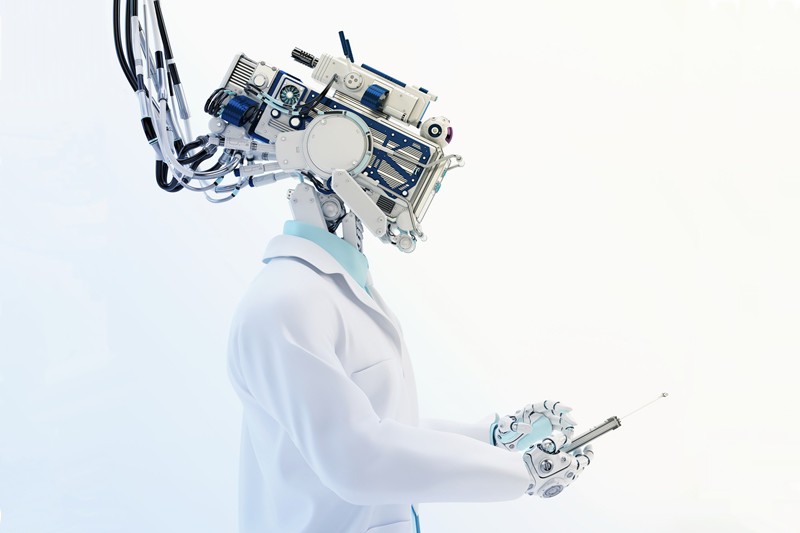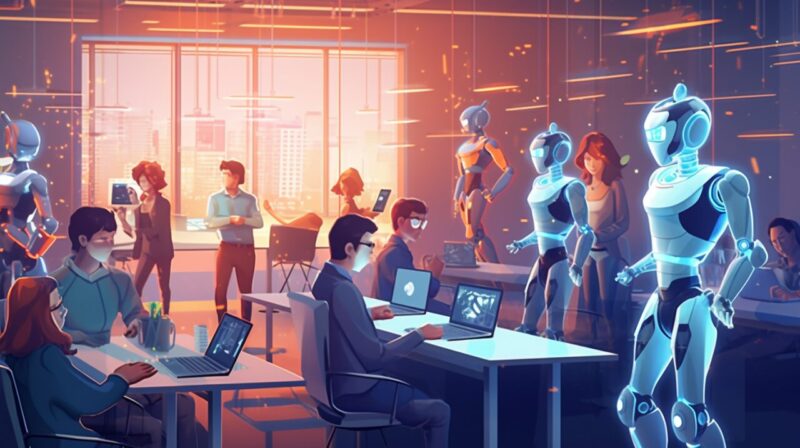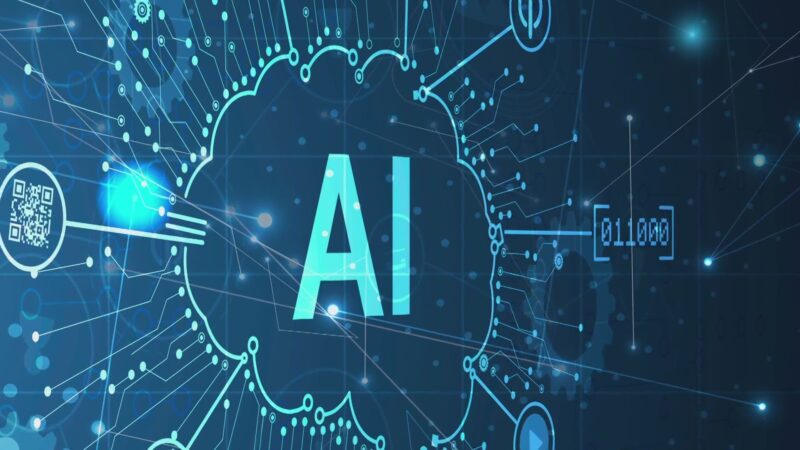Artificial Intelligence (AI) has transcended beyond the realms of science fiction and is now a pivotal part of our daily lives. It’s not just about smart assistants and autonomous vehicles; AI has some surprising skills that often go unnoticed. This article delves deep into these lesser-known facets of artificial intelligence, unveiling their potential and impact on various sectors.
The Artistic AI
Gone are the days when creativity was solely a human forte. AI systems are now creating art, music, and literature. These artificial intelligence artists don’t just replicate existing styles; they innovate, generating original pieces that challenge our understanding of artistry.
From composing symphonies to crafting intricate visual art, AI’s creative capabilities are reshaping the artistic landscape. It raises profound questions: What constitutes creativity? Can artificial intelligence be genuinely creative, or is it merely mimicking human patterns?
AI as the New Psychologist
AI technologies have advanced in understanding and interpreting human emotions. Emotional artificial intelligence, also known as affective computing, enables machines to recognize and respond to human feelings
This technology is revolutionizing areas like customer service, mental health, and even automotive safety, where vehicles can sense driver fatigue or stress. By analyzing voice tones, facial expressions, and body language, AI can offer insights into human psychology, opening new avenues for empathetic technology.
AI in the Adult Industry

The integration of artificial intelligence in the adult industry is revolutionizing the sector, offering new dimensions of personalized experiences. Artificial intelligence is used to create more interactive and responsive content, adapting to individual preferences and desires.
This technology is also playing a role in enhancing safety and consent, with AI-driven systems designed to detect and prevent non-consensual content. Furthermore, artificial intelligence contributes to the development of virtual and augmented reality experiences, creating immersive and realistic interactions. Visit undressai.com to explore what else artificial intelligence can do.
AI in Ecology
AI is a potent tool in combating environmental challenges. It’s being used to monitor climate change, track wildlife, and optimize resource use. Artificial intelligence algorithms can predict weather patterns and natural disasters with remarkable accuracy, aiding in preparedness and response.
In biodiversity, artificial intelligence helps in species identification and conservation efforts, providing vital data for ecological balance. The ability to process vast amounts of environmental data quickly makes AI an indispensable ally in our fight against ecological degradation.
The Gaming Revolution
AI’s influence in gaming goes beyond creating challenging opponents. It’s transforming game development and player experiences. Procedural generation algorithms create vast, dynamic worlds that react to player actions, making each gaming experience unique.
AI also helps in testing games, identifying bugs, and enhancing player engagement. The integration of artificial intelligence in gaming is not just elevating entertainment; it’s pioneering new ways of interactive storytelling and virtual experiences.
Artificial Intelligence in Medicine

Perhaps one of the most impactful roles of artificial intelligence is in healthcare. From diagnostic assistance to personalized treatment plans, artificial intelligence is revolutionizing medicine. It can analyze medical data faster and more accurately than humans, aiding in early disease detection and research.
AI-powered robots assist in surgeries, increasing precision and reducing recovery times. The ongoing development in artificial intelligence healthcare promises not just improved patient outcomes but also a new era in medical research and treatment methodologies.
AI in Marine Exploration
The depths of our oceans are less explored than in outer space, but AI is changing that. AI-driven autonomous underwater vehicles (AUVs) are mapping the ocean floor, studying marine life, and monitoring environmental changes.
These artificial intelligence systems can handle the immense pressures of deep-sea environments, collecting data that’s crucial for marine science. The insights gained aid in understanding climate change impacts, conserving marine ecosystems, and exploring underwater resources. AI’s role in marine exploration symbolizes a significant leap in our quest to understand our planet’s most mysterious realms.
AI in Agriculture
AI is revolutionizing agriculture, paving the way for more efficient and sustainable farming practices. From predictive analysis of weather patterns to soil health monitoring, artificial intelligence tools are helping farmers make informed decisions.
Drones and robots equipped with AI are used for tasks like crop monitoring, planting, and harvesting. This not only boosts productivity but also reduces environmental impacts. AI in agriculture is a testament to how technology can be harnessed to ensure food security and sustainable development.
Artificial Intelligence in Literature

AI is not just creating literature; it’s also analyzing it. artificial intelligence algorithms can dissect complex literary works, identify themes, and styles, and even predict future trends in literature. This analytical capability is a boon for scholars and publishers alike, offering new perspectives on literary analysis. AI’s role in literature extends to aiding writers by suggesting plot developments or stylistic improvements, making it a collaborative tool in the creative writing process.
AI as a Social Scientist
The application of AI in social sciences is opening new frontiers in understanding human societies. By analyzing vast amounts of social data, AI can identify patterns and trends that are not obvious to human researchers. This includes predicting social changes, understanding economic trends, and analyzing political movements. Artificial intelligence as a social scientist is not just about data analysis; it’s about gaining deeper insights into the fabric of society.
Artificial Intelligence in Space Exploration
AI is playing a crucial role in space exploration. From autonomous spacecraft navigating the cosmos to analyzing astronomical data, artificial intelligence is at the forefront of our cosmic journey.
Artificial intelligence algorithms process data from telescopes and space missions, aiding in the discovery of new planets and understanding cosmic phenomena. The use of AI in space exploration epitomizes the blend of human curiosity and technological prowess in our quest to explore the universe.
Fostering Education

AI is transforming education by offering personalized learning experiences. AI-powered educational tools adapt to individual student needs, providing tailored resources and feedback.
This not only enhances learning outcomes but also democratizes education, making quality learning accessible to all. Artificial intelligence in education extends to administrative tasks, aiding in the management of educational institutions and the analysis of educational trends.
Summary
AI’s lesser-known skills reveal its potential to be more than just a technological tool; it’s a catalyst for innovation across various domains. As we continue to explore AI’s capabilities, it’s crucial to address ethical considerations and ensure its responsible use.
The journey of artificial intelligence is one of discovery, collaboration, and transformation, impacting every facet of human life. Understanding and embracing AI’s diverse roles will be key to harnessing its full potential for the betterment of society and the world.













